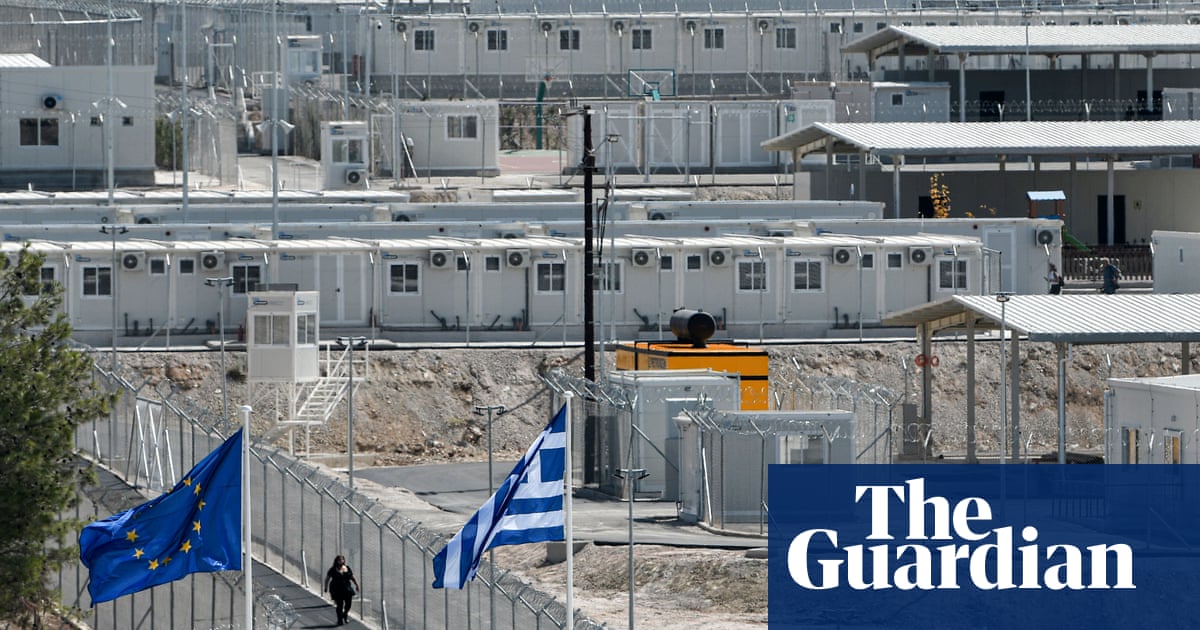Hundreds of millions inEuropean Unionfunds have been used in projects that violate the rights of marginalised communities, a report alleges, citing initiatives such as segregated housing for Roma, residential institutions for children with disabilities and holding centres for asylum seekers.
The report, based on information compiled by eight NGOs from across Europe, looks at 63 projects in six countries. Together these projects are believed to have receivedmore than €1bnin funding from the European Union, laying bare a seemingly “low understanding” of fundamental rights across the bloc, according to one of the authors of the EU-funded report.
While the report focused on six countries, those behind the analysis suggested that similar projects were probably widespread across the EU. “This is really just the tip of the iceberg,” said Ines Bulic of the European Network on Independent Living, describing it as “unacceptable” that funds provided by European citizens could have been used to amplify the discrimination and segregation of communities that already ranked among the bloc’s most marginalised.
She pointed to a school in Greece for people with disabilities and special needs, which had been part of a wider EU investment in special vocational schools, as an example. “What we would like to see is investment in inclusive education, which is very much needed in all of the EU, such as accessible schools, investments in support teachers and other services that allow children to attend regular schools,” she said.
Another example she gave was of an institution for children with disabilities in Romania, which had received €2.5m in funding, where children were being sent to live rather than being provided with support to remain with their families. “This of great concern. It is a right of all children, disabled or not, to grow up in their families.”
Other examples highlighted in the report include the construction of social housing for Roma in Romania on the edge of a city. Far from any public service, the homes are built from shipyard containers and do not meet the minimum requirements for thermal or sound insulation and sanitation, the report notes. Several reception centres for asylum seekers across Greece were also flagged for their extremely remote locations and poor living conditions.
Those behind the report cited several reasons to explain how millions of euros had ended up being allocated to projects seen as discriminatory. One was a seemingly “low understanding” of fundamental rights across some governments and parts of the EU, said Andor Urmos of Bridge EU, the organisation that had worked with various civil society groups across Europe to prepare the report.
“That’s what we need to tackle in the future,” he said. “To have a common view, a common understanding that building a segregated school for Roma children is a violation of fundamental rights, as is building a residential institution for people with disabilities or locking up people in reception centres like what is happening in Greece.”
The findings dovetail with a raft of recent reports. This week, the Council of Europesaid that school segregationwas resulting in lower-quality education for Roma, noting that the high concentration of Roma children in certain schools “appears to be the result of residential segregation, but also of continuing practices by school authorities to educate Roma children in separate classes or buildings”.
Last year an EU agencyfoundthat the number of people with disabilitieswho were livingin segregated,at times harmful,settings had increased in many EU member states, while civil society organisationshave repeatedlyaccused EU-funded refugee centres of violating people’s rights.
When contacted, the European Commission said it was aware of the findings of this week’s report and was looking into it.
“It is important to highlight that the commission does not fund any organisation that does not fully respect fundamental rights and values,” a spokesperson said. “In case of violation of the applicable conditions, we have means to terminate the cooperation and recover the money, as necessary.”
The report listed projects that were under shared management, meaning the commission relied on national authorities to ensure the legality and regularity of operations, it said. “Both the EU and its member states must continuously ensure that projects which are incompatible with European values or pursue an illegal agenda, do not receive support from government and European funds,” the spokesperson added.
The report highlighted serious shortcomings in how EU funds are being managed and monitored, said Steven Allen of the Validity Foundation, a disability rights organisation that also contributed to the document.
“We can see that both the EU member states, as well as the European Commission, are failing to prevent EU taxpayers money from facilitating and financing serious violations of the rights of multiple marginalised populations,” he said.
The report’s release was carefully timed to come before planning takes place for the EU’s next budget, set to take effect in 2028. Its findings made it clear that the voices of those who often go unheard needed to be included in the decision-making, said Allen.
Doing so could help unlock the transformative powers of EU funding, offering the potential to build inclusive education systems or overhaul areas such as public housing,where grievanceshave been linked to the rise of the far right.
“EU funds do have the potential to be a powerful tool and to provide real, tangible benefits of the EU project to the most marginalised populations on the continent today,” he said. “And they can indeed be used as an antidote against the rise of creeping nationalism and far-right extremist politics. The funds must be better targeted.”
